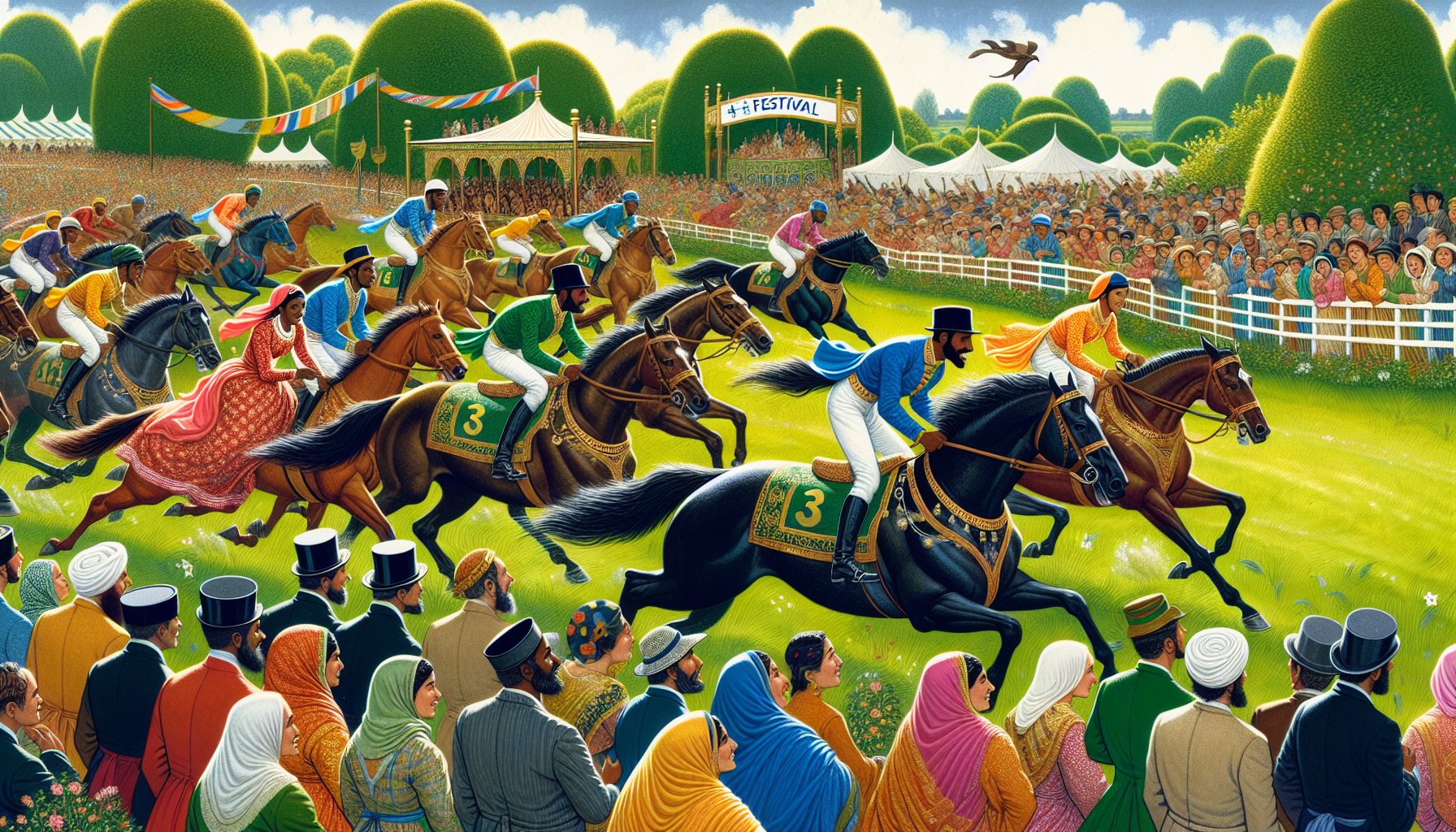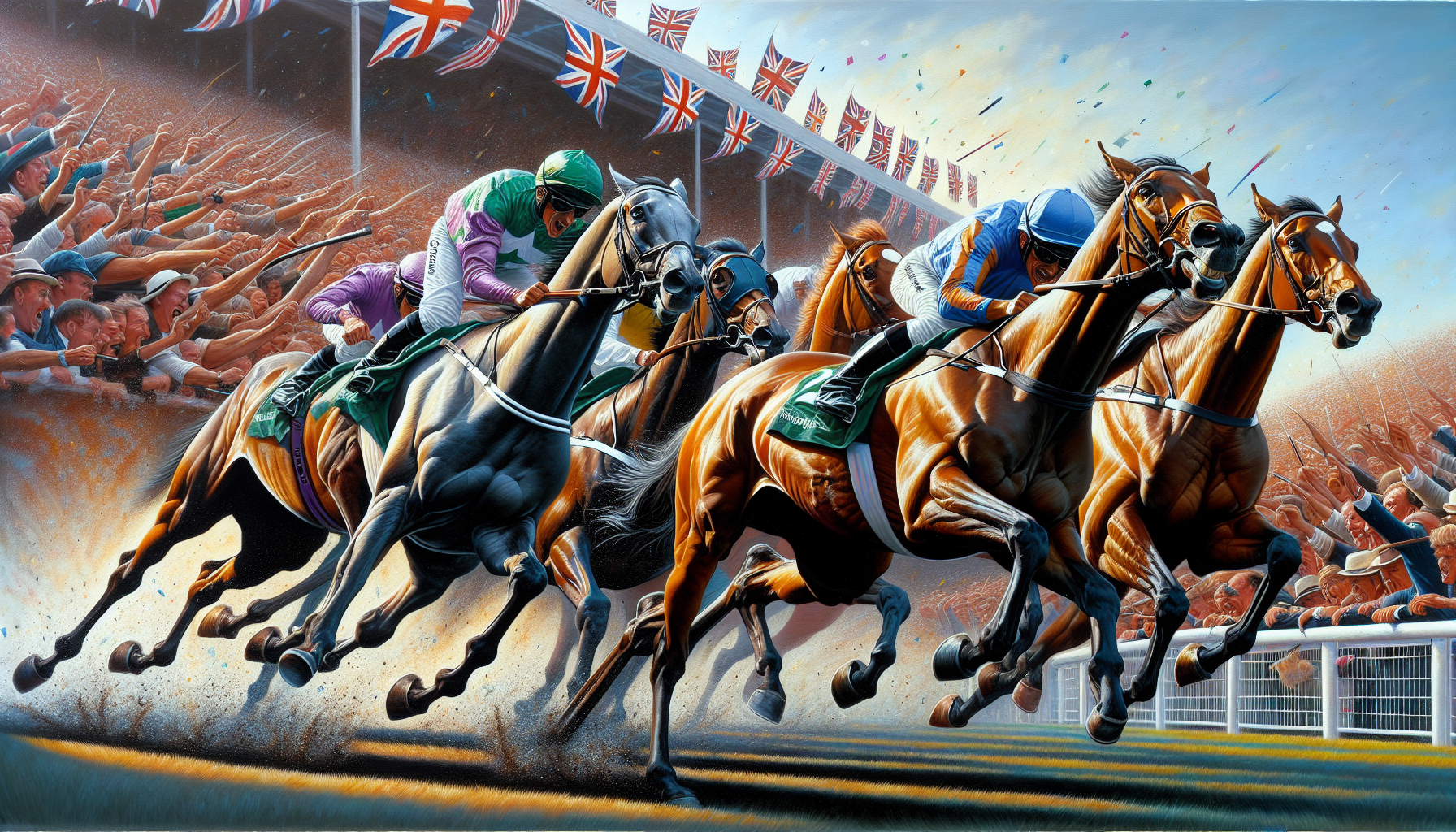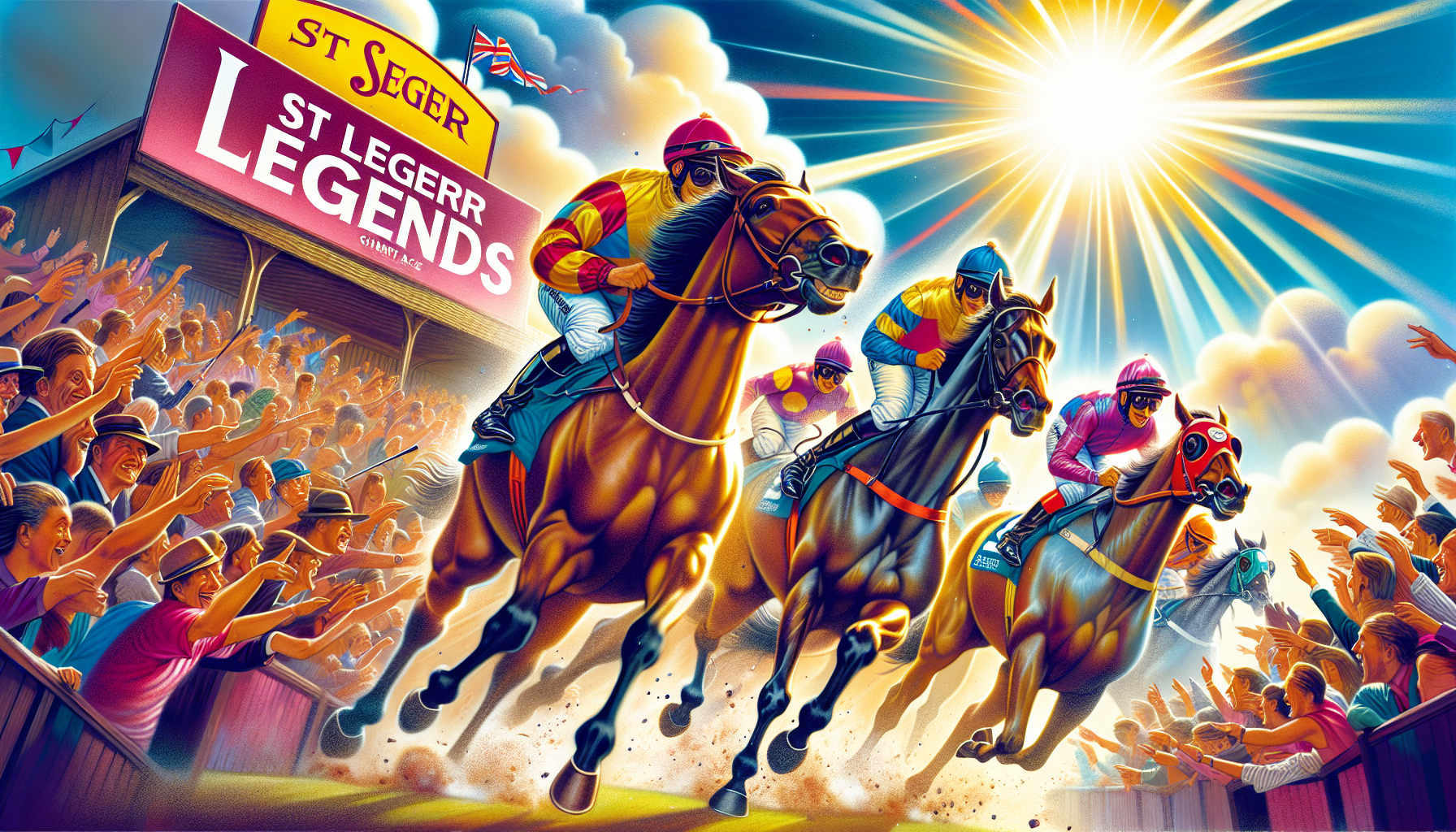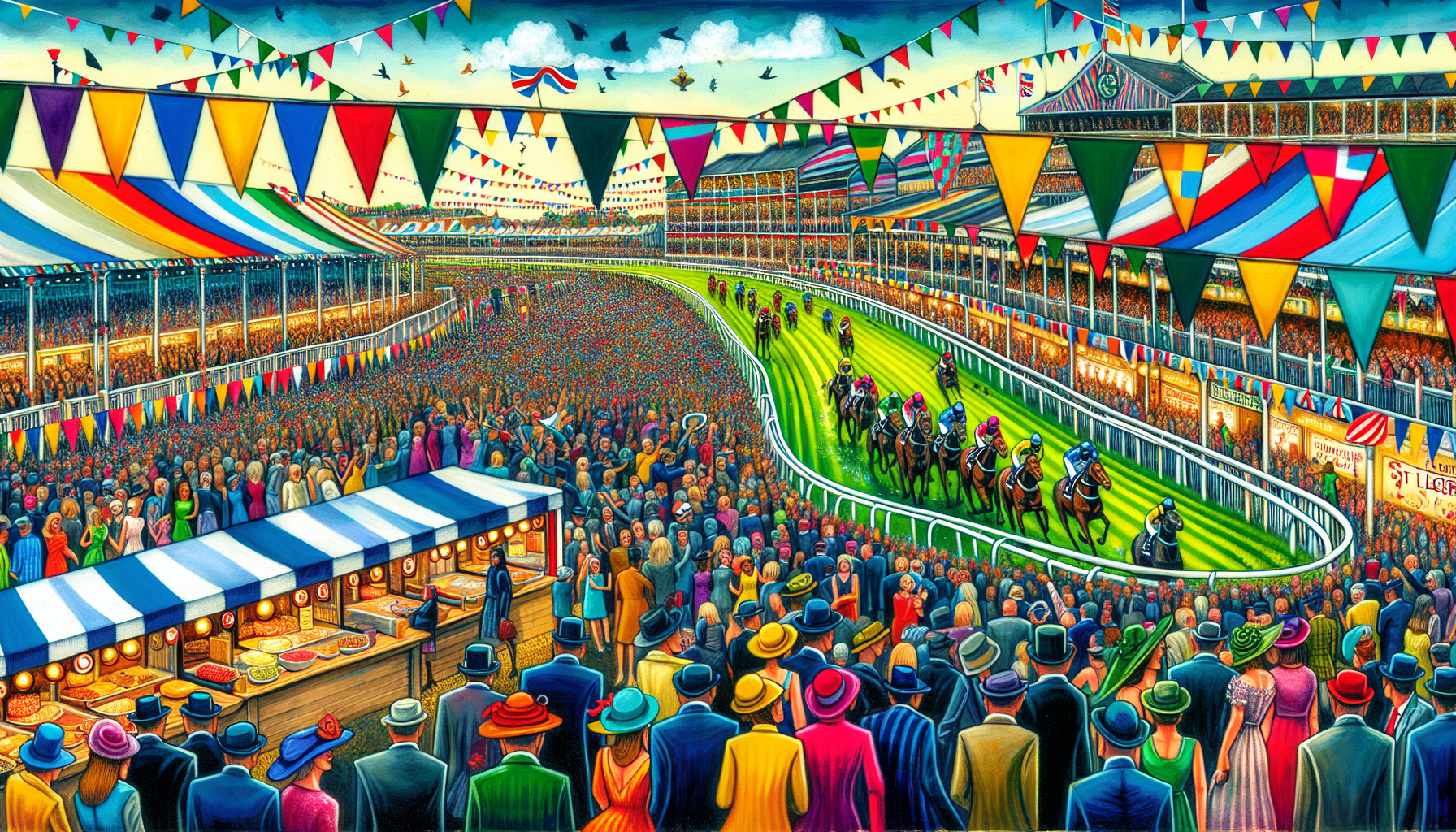The St Leger Festival, established by Lieutenant Colonel Anthony St Leger in 1776, is the oldest classic horse race in Britain. The St Leger Stakes serves as the final leg of both the English Triple Crown and the Fillies’ Triple Crown, highlighting its importance in the racing calendar. Known for its long-standing tradition and historical significance, this festival has shaped British horse racing and is a testament to the rich st leger festival history. In this article, we explore the origins, key moments, and the evolution of the St Leger Festival up to the present day.
Key Facts
The St Leger Stakes, founded in 1776 by Lieutenant Colonel Anthony St Leger, is the oldest classic horse race in Britain, marking its historical significance in horse racing.
Over the years, the St Leger Festival has adapted while maintaining its traditions, facing challenges such as cancellations during World War II but ultimately continuing to captivate audiences. The St Leger Stakes not only tests speed but also endurance, emphasizing that while the fastest horse wins in some races, the St Leger requires a superior horse to triumph.
The festival today combines horse racing with entertainment and philanthropy, featuring events like the Leger Legends charity race and attracting a diverse audience over several days.
Origins of the St Leger Festival

The St Leger Stakes began in 1776, establishing it as the oldest classic horse race in Britain. Founded by Lieutenant Colonel Anthony St Leger, an Irish soldier and later Governor of St Lucia, his vision created a lasting legacy in horse racing.
The inaugural race took place on September 24, 1776. This initial sweepstake for three-year-old horses had an entry fee of 25 guineas, a considerable sum at the time. The first horse to win the St Leger was Allabaculia, setting a precedent for the many champions that would follow, as the legacy of how a horse wins began.
Each year, the St Leger Stakes commemorates Lieutenant Colonel St Leger’s contribution to horse racing, now central to the Betfred St Leger Festival. This festival celebrates both the sport and its rich st leger history, honoring its founder.
Evolution Over Centuries
Since its inception, the St Leger Stakes has evolved significantly. The race moved to Town Moor in 1778, establishing a permanent home for countless thrilling finishes. The race format, standardized in 1906, has bolstered its enduring appeal.
Although the race format has remained largely consistent, the St Leger Festival has seen adjustments in conditions and entry requirements. A notable moment was the 2015 disqualification of Simple Verse, whose initial win was overturned after a stewards’ inquiry, enriching the narrative of the oldest classic horse race.
Over time, the festival’s prestige has grown, cementing its status as one of Britain’s oldest and most esteemed races. The English St Leger Stakes endures due to its ability to adapt while preserving time-honored traditions.
The Impact of World Wars
World War II’s outbreak in 1939 led to the first cancellation of the St Leger Stakes, disrupting its annual tradition. The war imposed severe restrictions on racing, prioritizing local meetings to minimize travel and conserve resources. Despite cancellations, horse racing continued, boosting morale during tough times.
Many racecourses were repurposed for military use or food production during the wars, impacting the racing calendar. The St Leger Festival at Town Moor faced similar challenges. However, the resilience of the racing community ensured the festival eventually resumed, despite numerous changes and challenges.
World War II’s end left the racing industry in disarray, with many horses and jockeys lost and numerous courses unable to reopen. Nevertheless, the St Leger Festival emerged from these dark times, continuing to captivate audiences and uphold its historical significance.
Key Historical Moments
Throughout its history, the St Leger Festival has seen numerous key moments. One remarkable instance was Theodore’s 1822 victory as a 200/1 outsider, the longest odds for a winning horse in race history. Such underdog triumphs bring unpredictability and excitement to the event.
In 2011, Masked Marvel set a near-record time of 3:00:44, narrowly missing the three-minute barrier on the Town Moor course. Such record-setting performances underscore the competitive spirit and high stakes of the St Leger Stakes.
The festival has also faced controversies, such as the Blink Bonny riot in 1857, when the favorite filly’s poor performance led to unrest among spectators. Both triumphant and tumultuous moments weave a rich tapestry of stories defining the St Leger Festival.
Famous Winners and Performances

As the final leg of the coveted Triple Crown, the St Leger Stakes has been achieved by only the best horses. Nijinsky, who completed the Triple Crown in 1970, remains the last triple crown winner since World War II, highlighting the difficulty and prestige of this accomplishment.
Jockeys have also made their mark, with Bill Scott holding the record for the most St Leger wins at nine. More recently, Hurricane Lane’s 2021 victory added another illustrious name to the winners’ list, following his prior G1 successes.
Frankie Dettori’s record-breaking performance with Logician in 2019 marked his sixth St Leger win, further cementing his status as one of the sport’s greatest jockeys. Joseph O’Brien’s unique achievement of riding and training a winner in 2020 adds to the festival’s storied history.
St Leger Legends Charity Race

Inaugurated in 2010, the Leger Legends charity race adds a unique element to the St Leger Festival. Featuring retired jockeys, it is the only event dedicated to former professional riders, highlighting their enduring contributions to the sport.
Supporting various charitable causes, particularly those benefiting retired jockeys, the race adds a philanthropic dimension to the festival. This blend of competition and charity enriches the St Leger Festival, transforming it into a community celebration.
St Leger Festival Today

Today, the Betfred St Leger Festival attracts thousands of spectators over four days, blending thrilling horse racing with entertainment. The festival kicks off with Ladies Day, known for its glamour and fashion, featuring a Style Awards competition with a cash prize. The second day includes the historic Doncaster Cup at Doncaster Racecourse, the oldest race governed by horse racing rules.
The festival culminates on St Leger Day, hosting the prestigious Betfred St Leger Stakes, the oldest Classic race in the world. The final classic day, Betfred Sunday Funday, is a family-friendly event featuring entertainment and the Leger Legends charity race.
The modern St Leger Festival remains a significant social event, attracting both high society and racing enthusiasts. Its blend of tradition and contemporary excitement makes it a highlight of the British flat racing season.
Hospitality and Experience
The Betfred St Leger Festival offers a range of hospitality packages to suit various preferences and budgets. From casual settings with grazing lunches to fine dining with gourmet three-course meals, attendees can choose their preferred experience. Packages often include amenities such as admission, a race day program, and Tote betting facilities, with many featuring champagne receptions and afternoon tea.
Exclusive boxes are available for groups, providing a private space with exceptional race views. These offerings ensure every visitor enjoys a memorable day, making the St Leger Festival a premier event in South Yorkshire’s social calendar.
St Leger Festival in Pop Culture
The St Leger Festival has left its mark on pop culture, featuring in various movies and television series that highlight its status in British society. Historical depictions often showcase the festival’s origins and evolution, emphasizing its significance in horse racing.
Beyond the races, the St Leger Festival is celebrated as a social gathering, reflecting its broader cultural importance. It symbolizes British tradition, blending sport with social festivities.
The festival’s impact on contemporary culture is undeniable, making it a key event in both the racing calendar and the cultural life of Britain.
Summary
The St Leger Festival, with its rich history and continuing significance, remains a cornerstone of British horse racing. From its origins in 1776 to its modern-day celebrations, the festival embodies the spirit of competition and community. The enduring appeal of the St Leger Stakes and the vibrant events surrounding it ensure that this festival will continue to captivate audiences for generations to come.
Frequently Asked Questions
When was the first St Leger Stakes held?
The first St Leger Stakes was held on September 24, 1776.
Who founded the St Leger Stakes?
The St Leger Stakes was founded by Lieutenant Colonel Anthony St Leger, an Irish soldier.
How did World War II impact the St Leger Festival?
World War II significantly impacted the St Leger Festival by causing the cancellation of the St Leger Stakes in 1939 and necessitating the repurposing of racecourses for military use. This disruption had lasting effects on the tradition and scheduling of the event.
What is the Leger Legends charity race?
The Leger Legends charity race, initiated in 2010, showcases retired jockeys racing to raise funds for various charitable causes. This event not only celebrates the sport but also emphasizes the importance of giving back to the community.
What makes the St Leger Stakes significant in horse racing?
The St Leger Stakes is significant as the oldest classic horse race in Britain and the final leg of the Triple Crown, underscoring its prestigious status in horse racing history.






